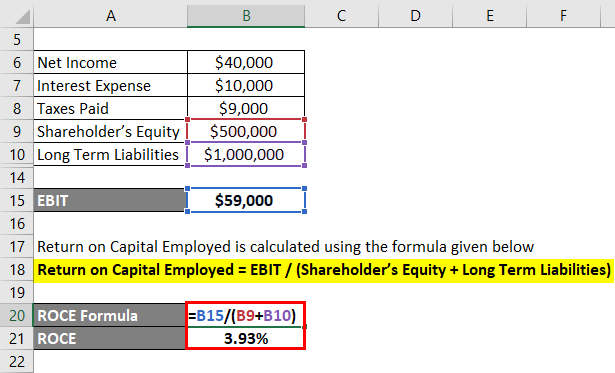Are You an Enabler? Learn About Enabling Behaviors
NARA NW has grown from a single outpatient treatment center in 1970 to ten locations in the greater Portland area. Its youth residential-treatment program, launched in 2017, represents the nonprofit’s commitment to prevention as a first line of defense against alcohol and drug abuse. The discovery of a child’s addiction can be one of the most painful heartbreaks as a parent. We envision our children growing up living a life that is even better than our own–but these hopes and expectations come crashing down at the clutches of substance use disorder. SUDs affect families and children in every area of their development. Social workers have opportunities to intervene and change the trajectory of these potential problems at many junctions.
How to Help Your Adult Child With Addiction

A key way to accomplish this is through open and assertive communication. Good communication can help you catch problems early and react in appropriate https://startentrepreneureonline.com/salmon-fish-farms/ ways. Assertive communication includes a balance of asking questions and actively listening to drive a productive conversation. Families can call the toll-free number to speak with an admissions counselor, and in that conversation, they can get information on the therapies offered and the timeframes involved. For example, TheWisconsin Council on Problem Gamblingreports that the average debt of a problem gambler in 2014 was $47,000. That’s the average debt, too, so there were people with gambling addictions who owed even more.
ACTIONS
- First, educate yourself about the biological and psychological elements of addiction and learn about the various available addiction treatment options.
- For example, in a healthy relationship, a partner might agree to take over all of the laundry duties during a week in which the other partner is slammed with work deadlines.
- Love for a child, partner, sibling, or close friend is a powerful emotion, which is why enabling behavior is an easy trap to fall into, says Deena Manion, PsyD, LCSW, chief clinical officer at Westwind Recovery in Los Angeles.
Establishing guidelines will set clear expectations for your child regarding acceptable and unacceptable behaviors. Clear, https://last24.info/read/2008/02/01/1/126 consistent rules are related to improved outcomes with addiction. Not only will guidelines help your child, but they will also help to determine your reactions to situations as they present. Along with all of those signs of upset and stress, family members might still believe that they can somehow shift the behavior and make the person’s addiction fade away.
- Addressing these issues can help decrease your child’s dependency on drugs.
- Helping, by definition, means “being of benefit to,” “improving a situation,” or doing something in someone’s best interest.
- AddictionResource fact-checks all the information before publishing and uses only credible and trusted sources when citing any medical data.
- So it’s a natural instinct to protect them from undesirable consequences as they grow.
Is your child suffering from addiction?

After that opening conversation, families should work to limit the one-on-one time they spend with the addicted person. That’s a tip from an ARISE Intervention, and according to theAssociation of Intervention Specialists, it’s aimed to help reduce pressure and manipulation. If the family doesn’t have one-on-one talks, it’s harder to perform back-door attacks and sneaky innuendo. One person might be willing to fall under the sway https://primegang.ru/individyalnie/296-kulturizmorbodybuilding.html of an addicted person’s charm, but the other might be the voice of reason that helps the whole family to stick with their new plan. You can say things like, “It seems like you’ve been going through a difficult time lately. These types of statements and questions are open-ended and let your child know you care.


Early results from COIPP-funded programs show increased engagement in prevention services across participating communities, reinforcing how Indigenous approaches can strengthen modern addiction medicine. “We need systems that can help them to heal and feel safe and supported in healthy ways,” she added. The enabler will often say that he or she is “just trying to help” or “what am I supposed to do, let him go broke or die? ” It is never a question as to whether or not a parent or significant other loves or trusts the addict or alcoholic. Don’t turn a blind eye to intolerable behaviors, including theft, disrespect and abuse, late-night phone calls, or failure to follow through on responsibilities.

Reasons You Should Cut Off A Loved One With Addiction
- Seeing the addict descend deeper into addiction and farther away from recovery can also weigh mentally on those who care about the individual and wish that they could get help, even the enabler themselves.
- Many parents wonder about what to expect in rehab when their adult child agrees to get help.
- It reached 65.2 per 100,000 people in 2022, 15% more than in 2021, according to CDC data.
- It can be very challenging for parents to set limits with adult children who have become overly dependent.
- One of Zambia’s most popular actors and filmmakers Owas Mwape broke a social taboo by admitting that one of his young sons has an addiction to drugs when he posted a recent appeal for advice on Facebook.
- Black, says helping kids separate the parent from the behavior is one of the best ways you can help.
Individuals with SUDs cannot be understood and treated effectively without considering the impact on the whole family. Addictions researchers have confirmed the reciprocal relationship between the disease of addiction and the environment. All persons influence their social environment and in turn are influenced by it. The family system must be factored into the understanding of the disease development and maintenance as well as be included in the efforts necessary for successful ongoing treatment.
It can be incredibly helpful for parents of drug addicts coping with these problems to go to therapy on their own.
Initially, it’s important to have an expert’s perspective and guidance to gain more clarity into which of your behaviors are helpful and which are actually harmful. And ultimately, your daughter or son needs clinical care to help them overcome the major hurdles of their substance dependency and the addictive, destructive behaviors that have become like second nature to them. Whereas guidelines are a set of rules based on behaviors, your boundaries are the things that you will and will not do for your child. They represent reasonable ways for people to treat you and for you to treat them. Those with drug addictions are notoriously good at testing the boundaries of those they love directly, or indirectly through manipulation.

.jpeg)
.jpg)






.jpeg)
.jpg)